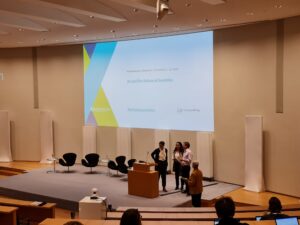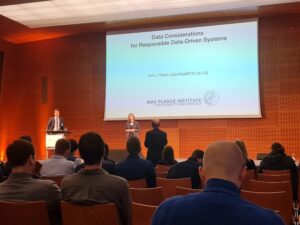The journey from an initial idea to a finished product is generally known to be a long one. At least, this also seems to be the case with the implementation of AI systems that are intended to support various areas of everyday life. With regard to the automated understanding of language and images, AI models have made great progress in recent years and are being used in more and more applications, such as chatbots (see GUDI at Goethe University). The Educational Technologies team is therefore researching AI implementations in the education sector to support teachers and students, as well as to develop autodidactic learning environments.

The fact that the development of AI technologies continues to advance and the ideas around AI systems are becoming more and more precise is also shown by the invitation of Sebastian Wollny to two AI conferences in one week, who took part in the “elf Annual Conference” and the “Herrenhausen Conference – AI and the Future of Societies”.
While lighthouse topics such as AI-based training data processing, the recognition of multimodal information, the challenge of bringing AI experts together with domain experts and users and the public availability of sensitive training data were discussed at the elf Annual Conference, research projects were presented in detail at the Herrenhausen Conference. Here, the central role of chatbots in various research areas became apparent, ranging from self-explanatory chatbots, the perception of chatbots by children, the development of a personality profile of chatbots to a chatbot-based learning unit for recognising misinformation on the internet.

We take these many impressions with us into our daily work and see ourselves confirmed that research on AI systems is an important research topic. From what we have seen, AI systems could indeed be deployed in many areas of society beyond education in the near future.
